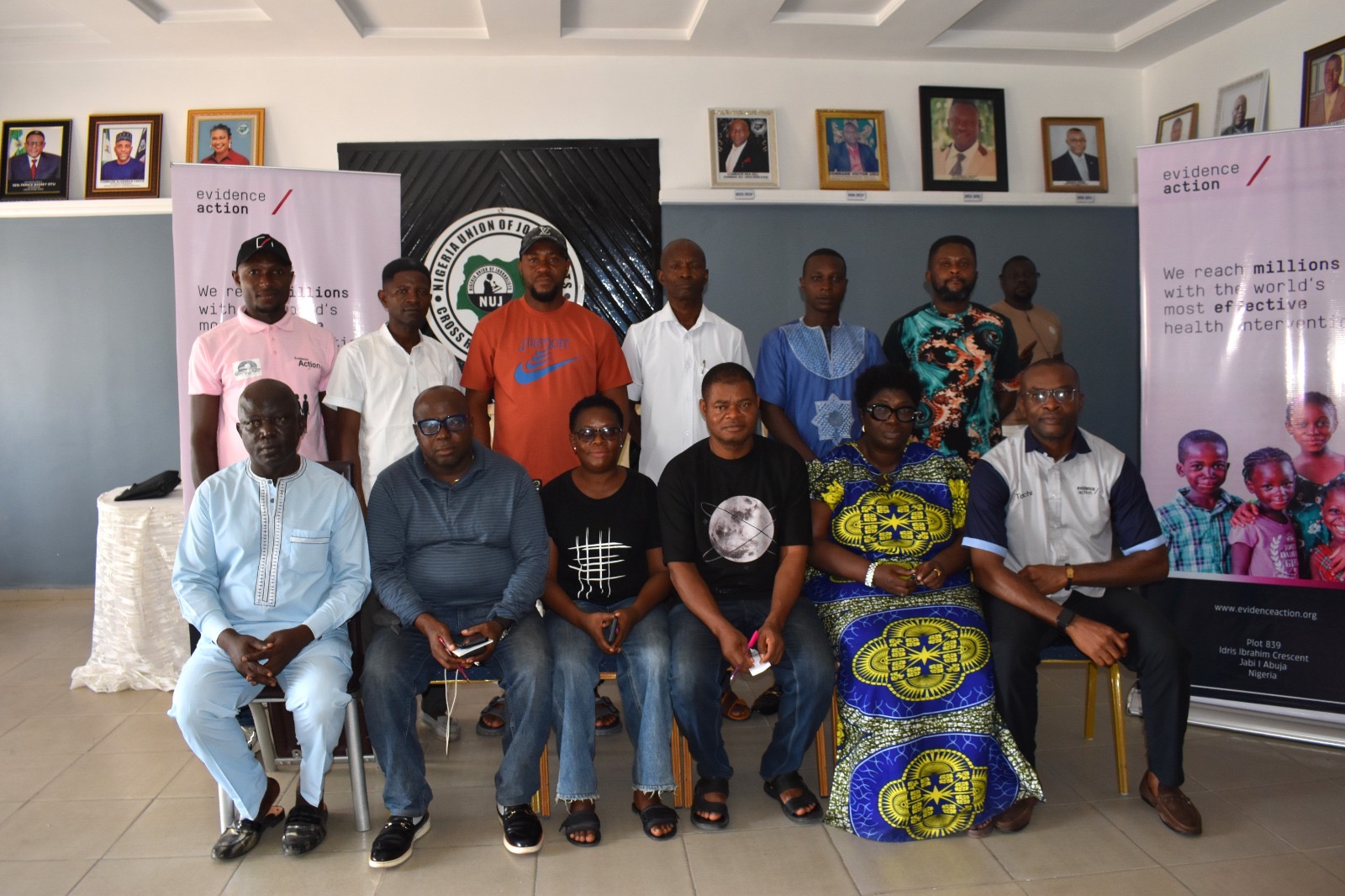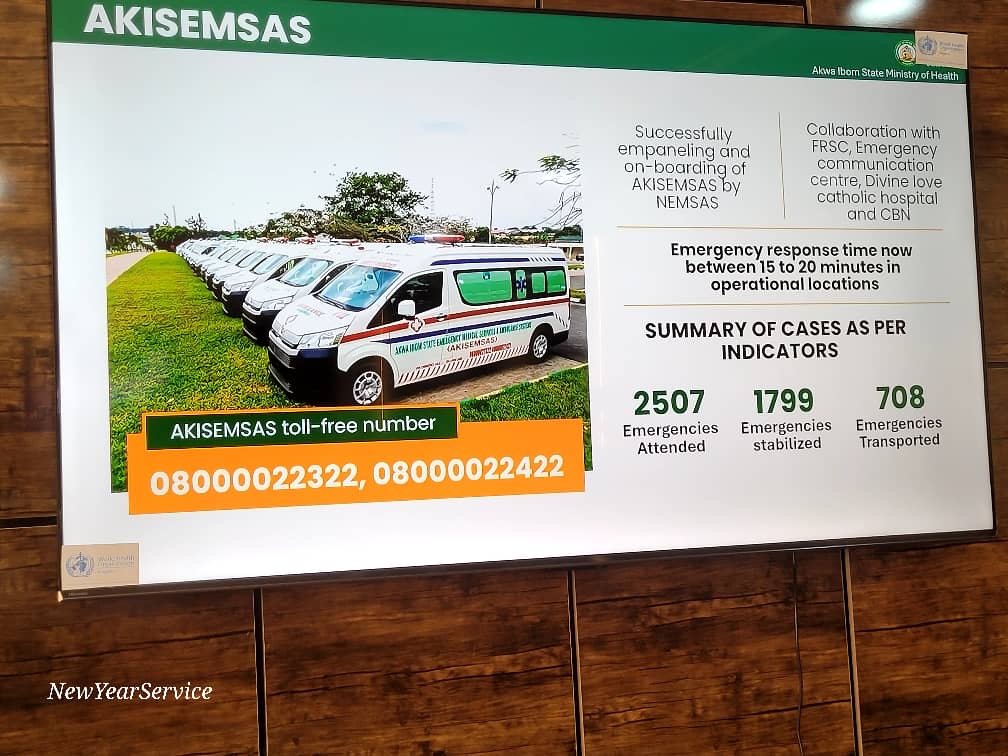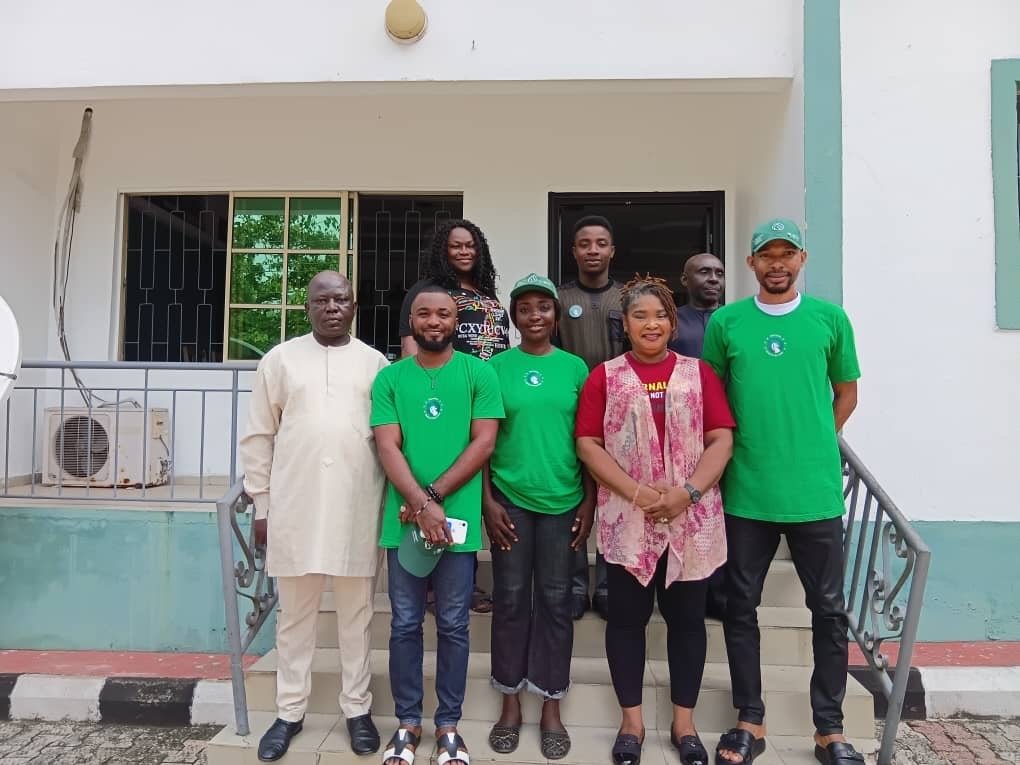Evidence Action Senior Programmes Manager for South South, Toochi Ohaji (second from right, front row) and others at the briefing.
By Anietie Akpan
A global health organization, Evidence Action, has launched a campaign to deworm over 900,000 school children in Cross River State
This campaign is to help improve their health and school performance.
The group’s Senior Programmes Manager for South South, Toochi Ohaji, disclosed this over the weekend during a media parley at the Ernest Etim Bassey NUJ Press Centre in Calabar.
According to Ohaji, the organization intends to reach 912,854 children across 14 selected Local Government Areas (LGAs) in the state as part of its 2025 programmes starting May 14, following the successful treatment of 847,455 children in 2024.
“We are committed to supporting the state government in scaling up access to safe, school-based deworming treatments,” Ohaji said.
“Our focus is on ensuring that children are healthy and able to attend school without the burden of intestinal worm infections.”
Worm infections, which thrive in areas with poor sanitation, can lead to malnutrition, anemia, and delayed mental development in children. They also contribute to high rates of absenteeism in schools and long-term economic disadvantages.
Evidence Action emphasized that its approach training teachers and health workers to administer deworming tablets in schools is a low-cost, high-impact solution that reaches the most vulnerable age group.
He said In Nigeria, the organization has worked with federal and state governments since 2016, helping to deliver treatments to over 42 million children across states such as Oyo, Ogun, Lagos, Rivers, and Cross River.
The 14 LGAs where the campaign will take place are: Akamkpa, Akpabuyo, Bakassi, Bekwarra, Biase, Calabar Municipal, Calabar South, Etung, Obanliku, Obudu, Odukpani, Ogoja, Yakurr, and Yala.
Evidence Action is also working with state officials to strengthen logistics, training, community mobilization, and programmes monitoring.
He said the initiative aligns with global and national targets to eliminate soil-transmitted helminths and schistosomiasis as public health threats.
Ohaji further called on the media to play a key role in educating the public, countering harmful myths, and promoting community acceptance of the program. He stressed the safety and effectiveness of the deworming medicines used.











